The action of bromine water (excess) on salicylic acid results in the formation of :
A
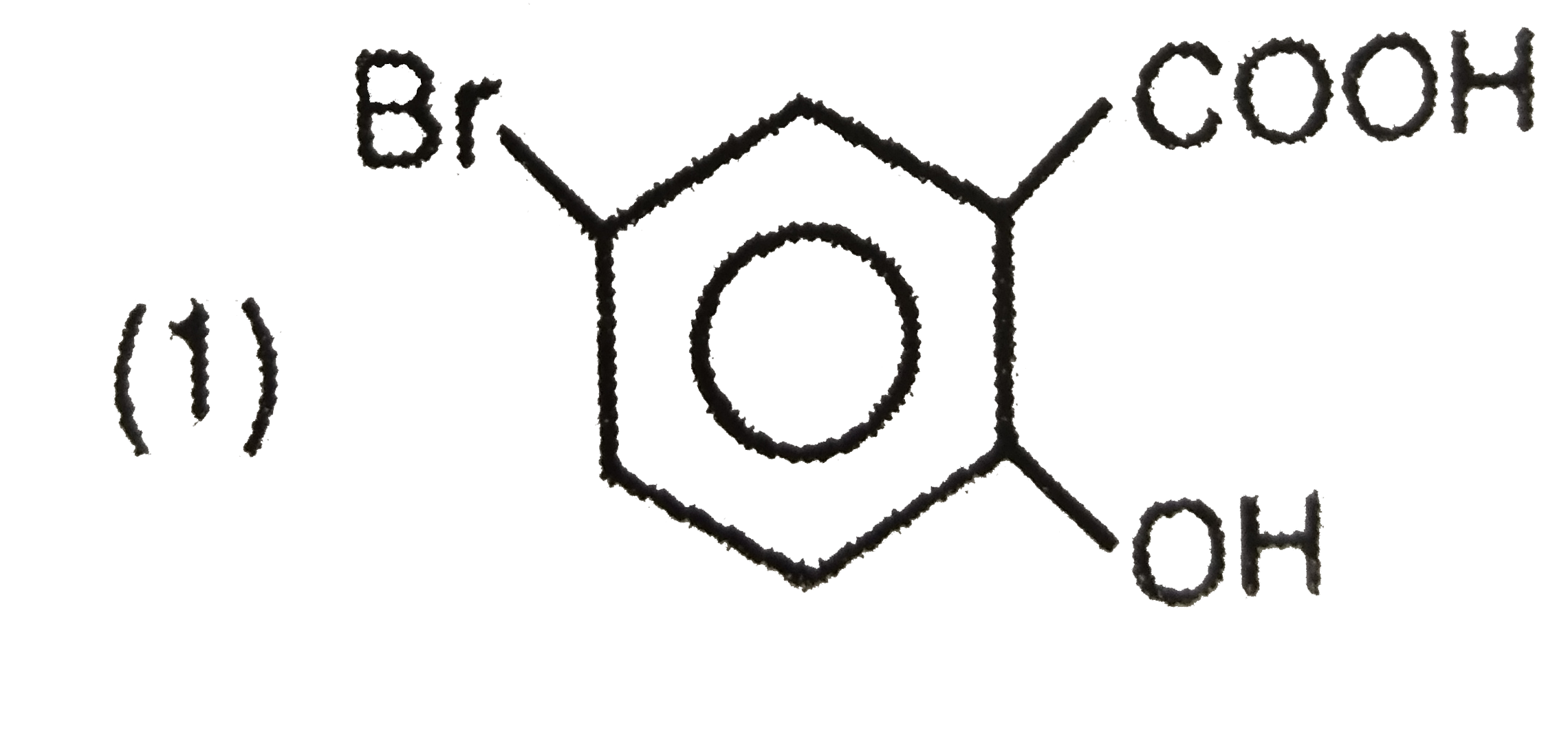
B
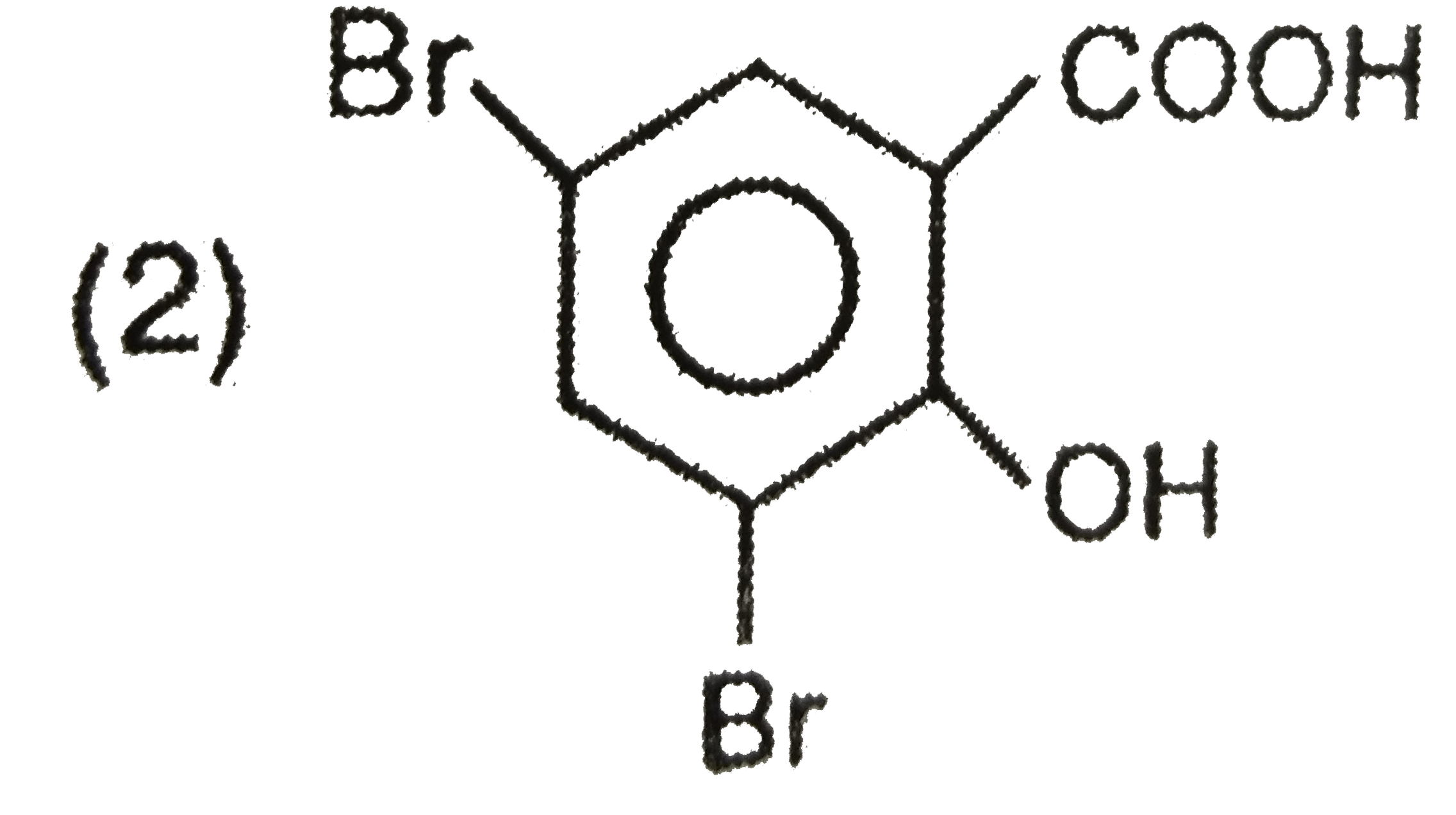
C
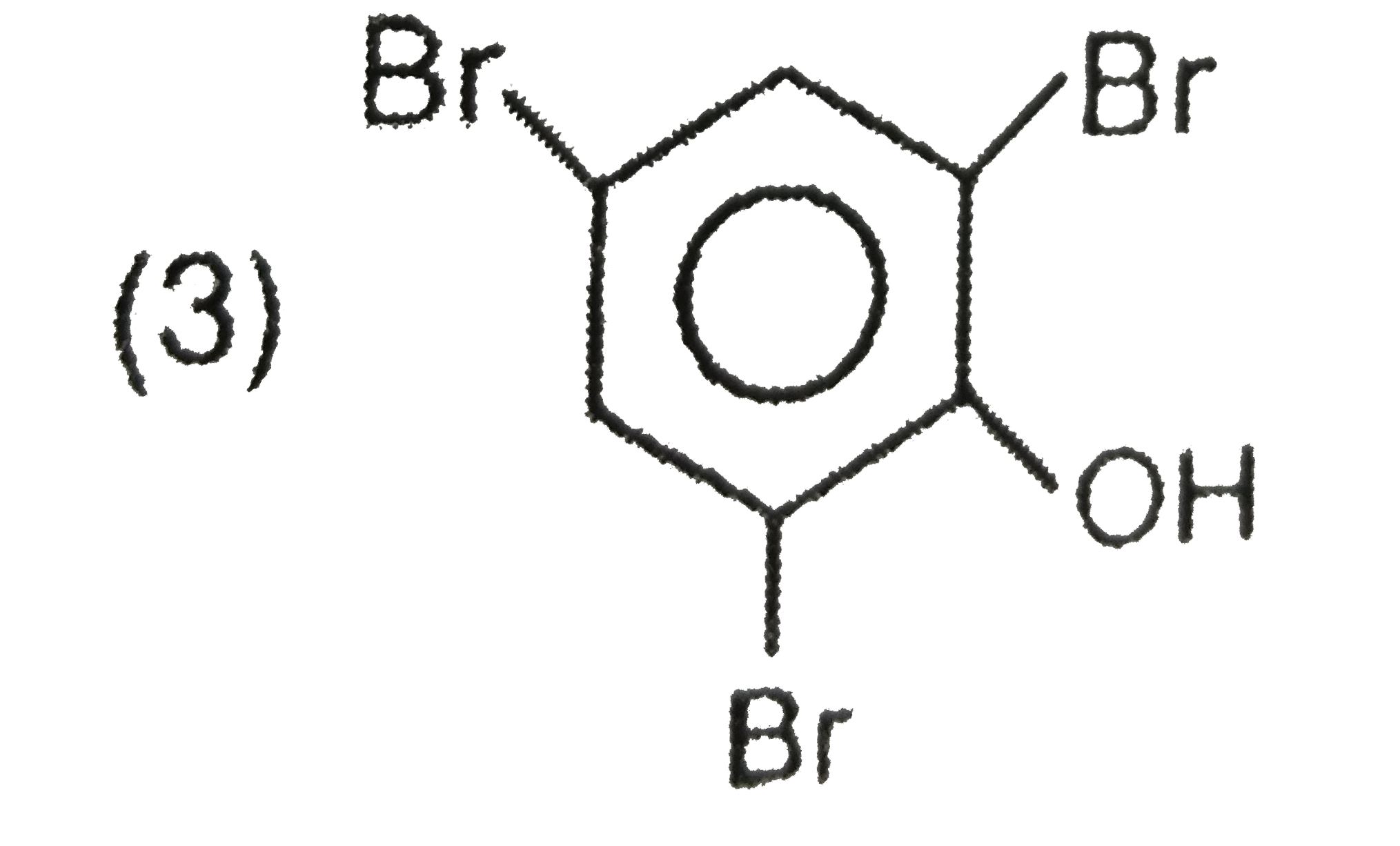
D
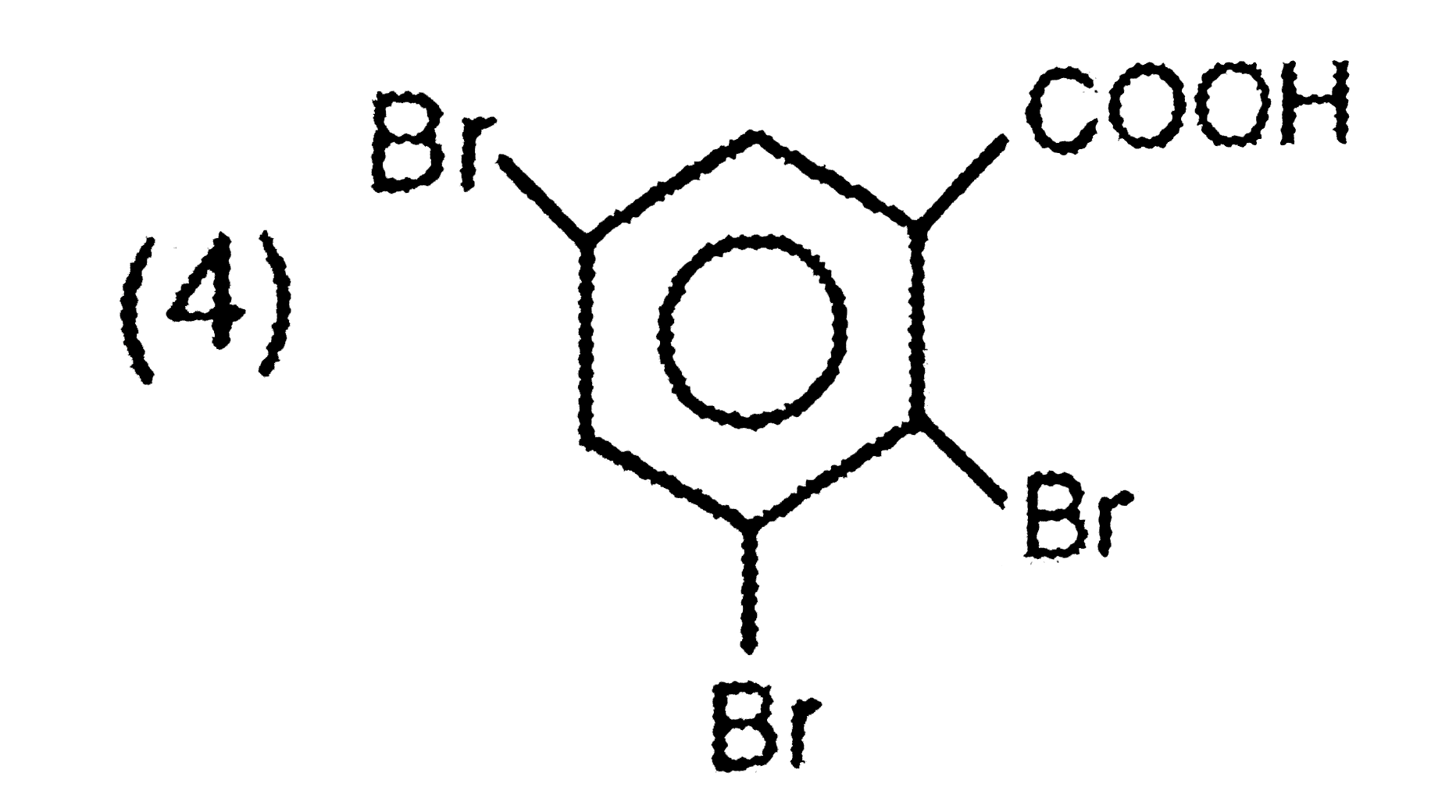
Video Solution
Text Solution
The correct Answer is:C
|
Updated on:21/07/2023
Topper's Solved these Questions
- BOOK - RESONANCECHAPTER - AROMATIC COMPOUNDSEXERCISE - Part - II NSEC31videos
AROMATIC COMPOUNDS
- BOOK - RESONANCECHAPTER - AROMATIC COMPOUNDSEXERCISE - Part - III Practice Test-21videos
AROMATIC COMPOUNDS
- BOOK - RESONANCECHAPTER - AROMATIC COMPOUNDSEXERCISE - JEE MAIN (Online Problem)16videos
AROMATIC COMPOUNDS
- BOOK - RESONANCECHAPTER - ALKYL HALIDE, ALCOHOL, PHENOL, ETHEREXERCISE - ORGANIC CHEMISTRY(Alkyl Halide, Alcohol,Phenol,Ether)56videos
ALKYL HALIDE, ALCOHOL, PHENOL, ETHER
- BOOK - RESONANCECHAPTER - BASIC CONCEPTSEXERCISE - ORGANIC CHEMISTRY(BASIC CONCEPTS)27videos
BASIC CONCEPTS
Similar Questions
Knowledge Check
- Question 1 - Select One
The aciton of bromine water (excess) on salicylic acid results in the formation of
A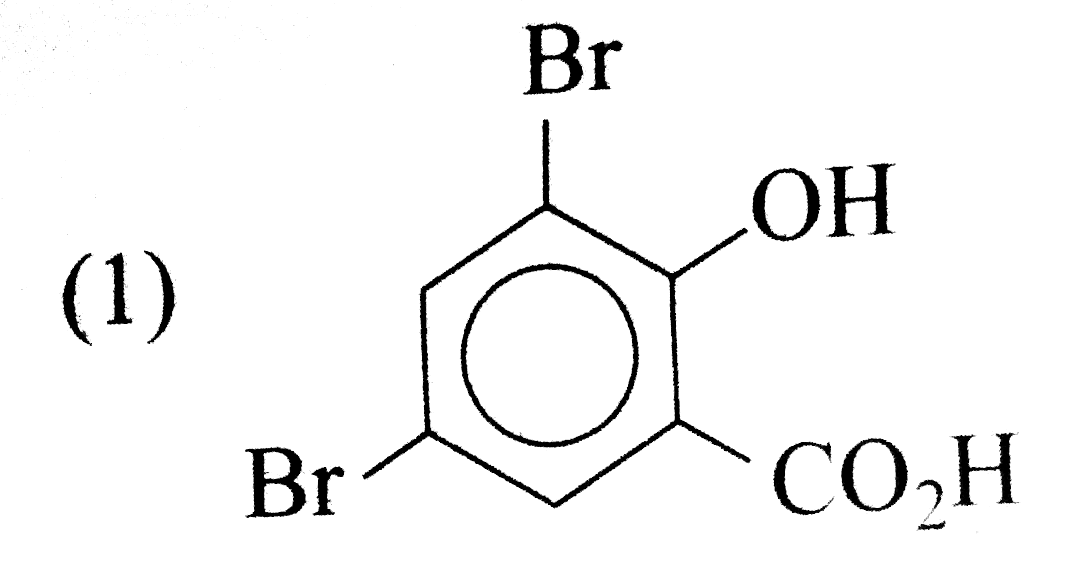 B
B C
C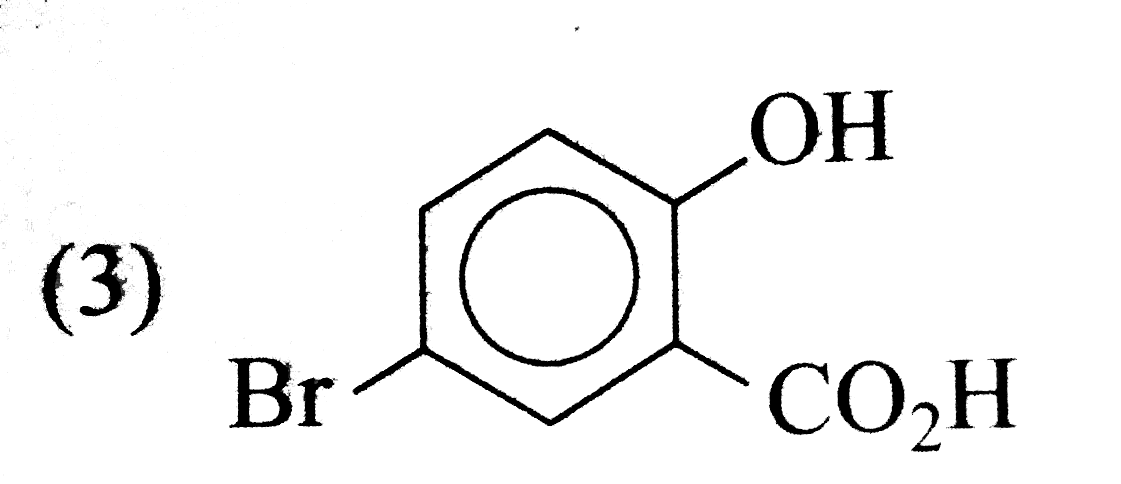 D
D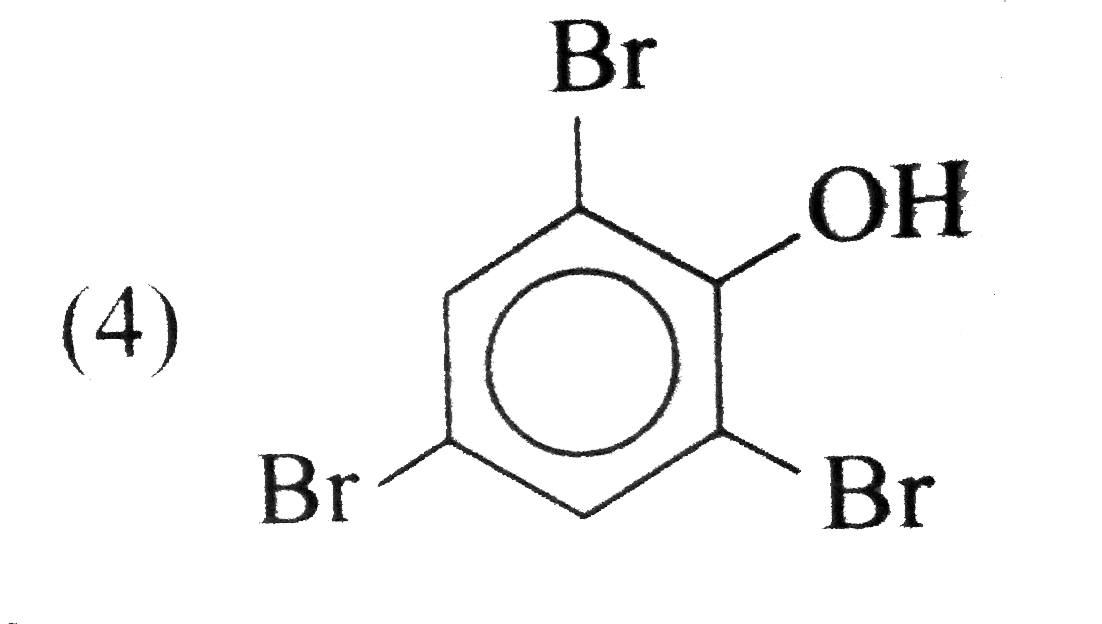
- Question 2 - Select One
Salicylic acid is used
Aas an antisepticBas a medicine for rheumatic painCin the preparation of azo dyesDall of the above - Question 3 - Select One
The action of Br2/H2O on salicylic acid results in the formation of :
A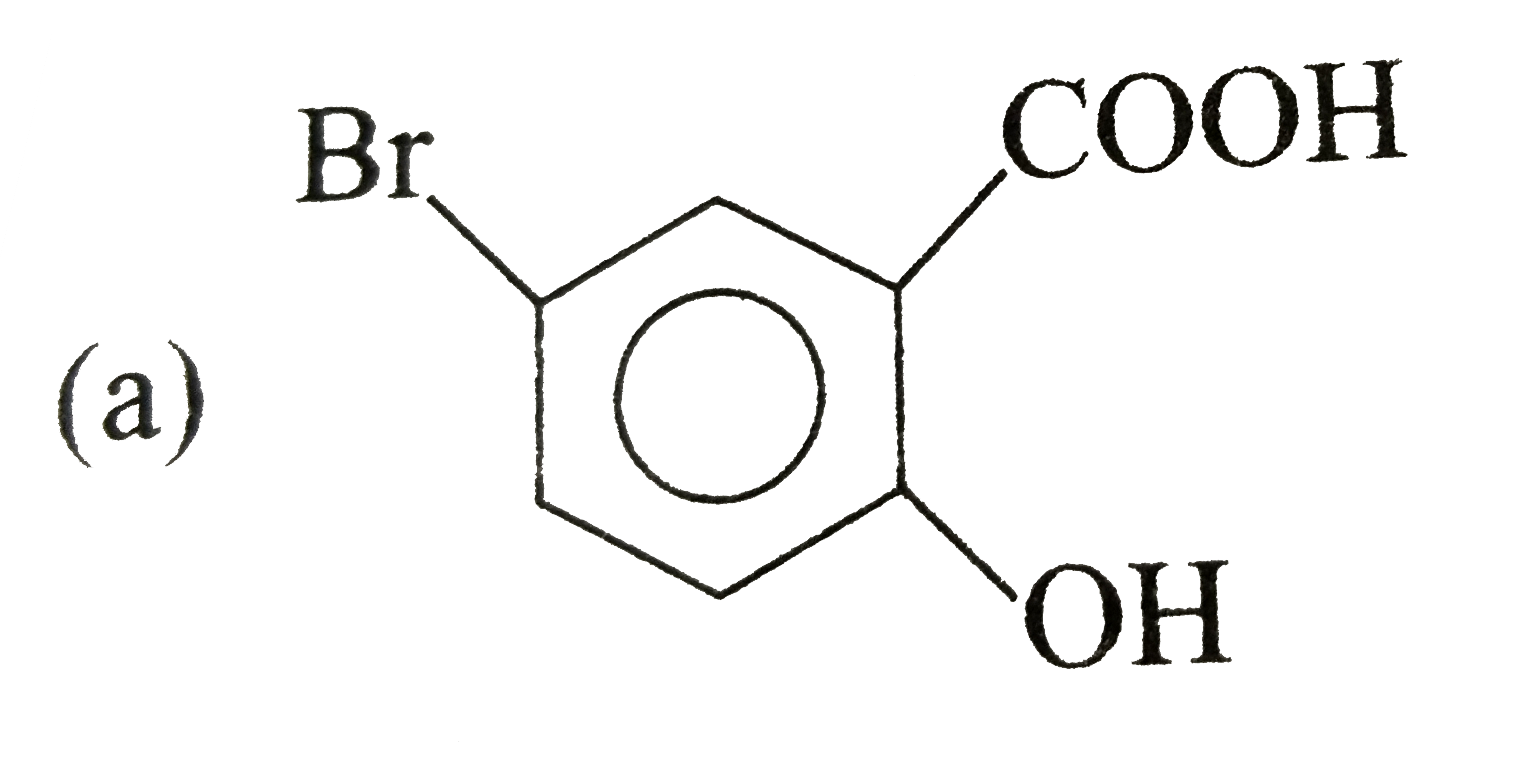 B
B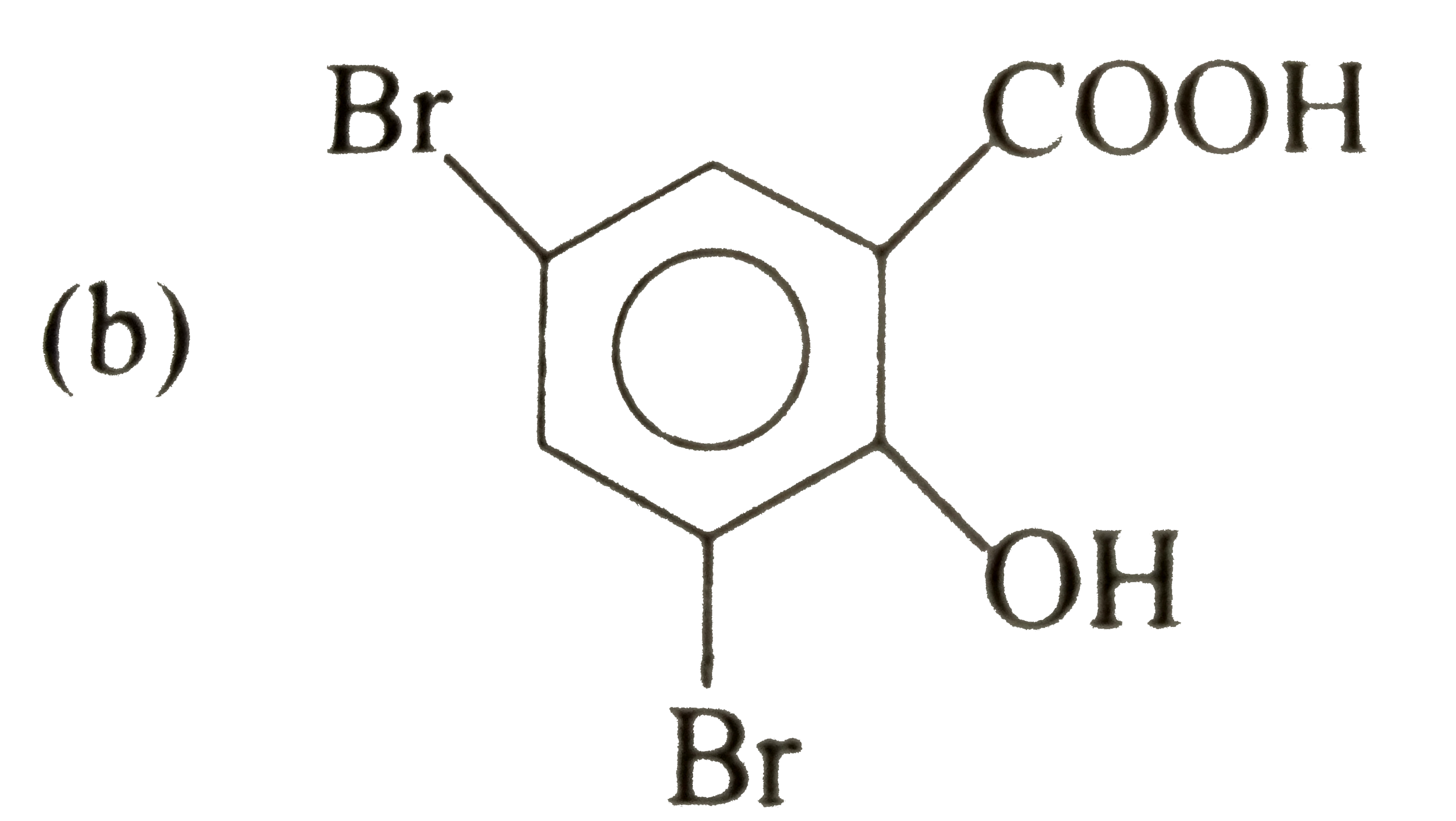 C
C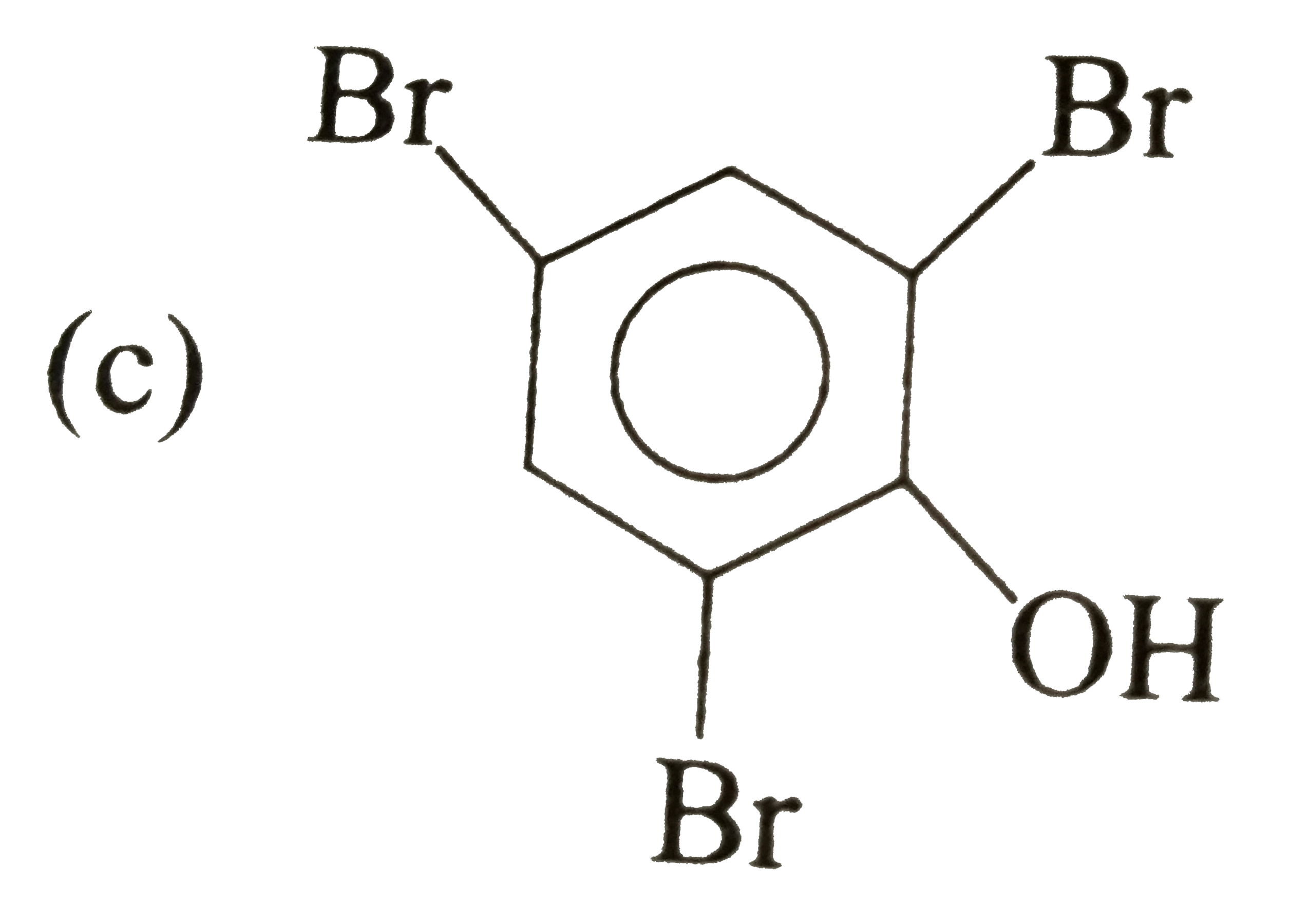 D
D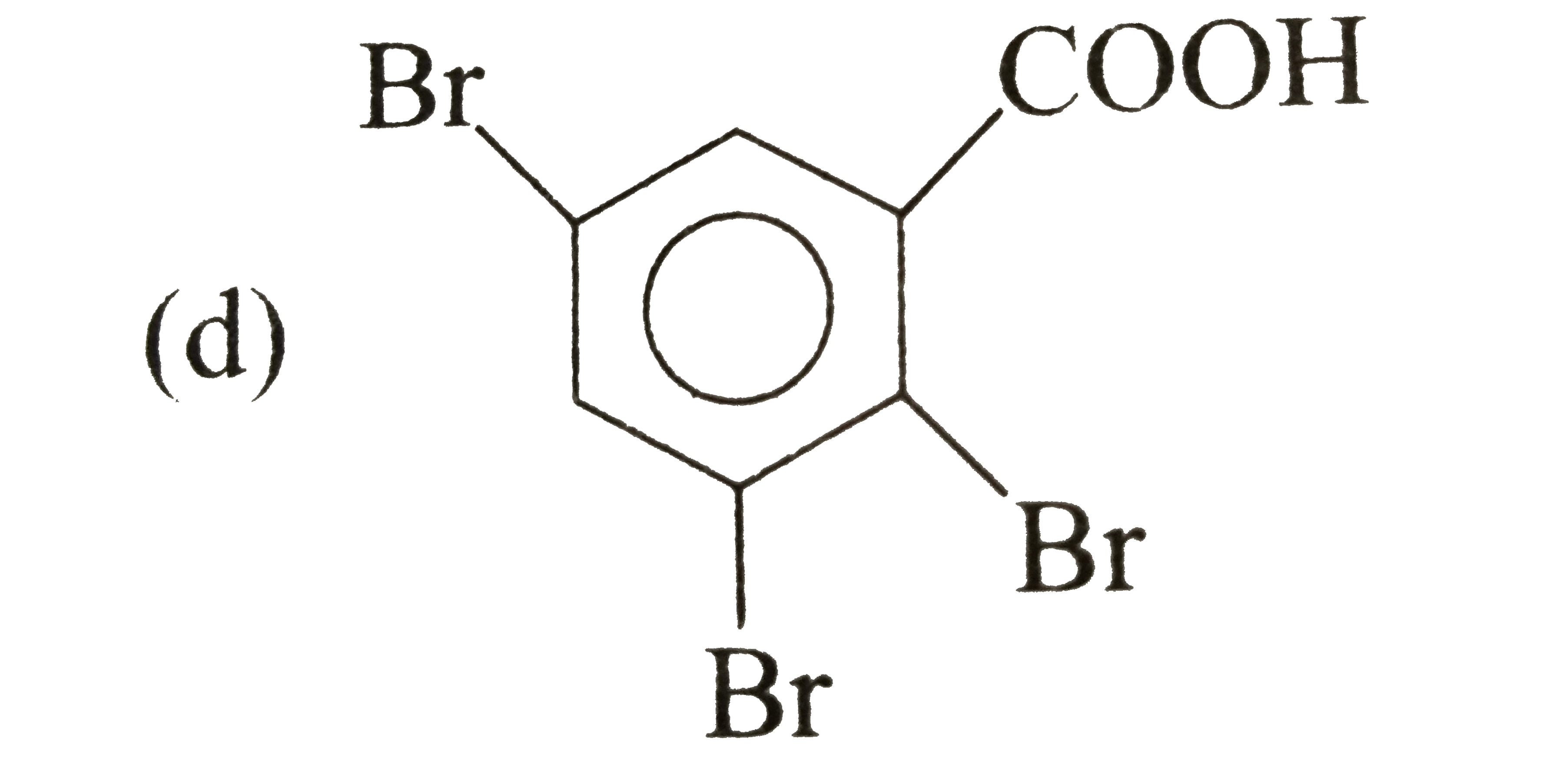
The reaction of ammonium hydroxide and carbonic acid results in the formation of
View SolutionSalicylic acid is used to get
View SolutionPhoto-oxidation of water results in the formation of
View SolutionSalicylic acid reacts with ICI vapour to produce
View SolutionSalicylic acid reacts with ICI vapour to produce
View Solution


